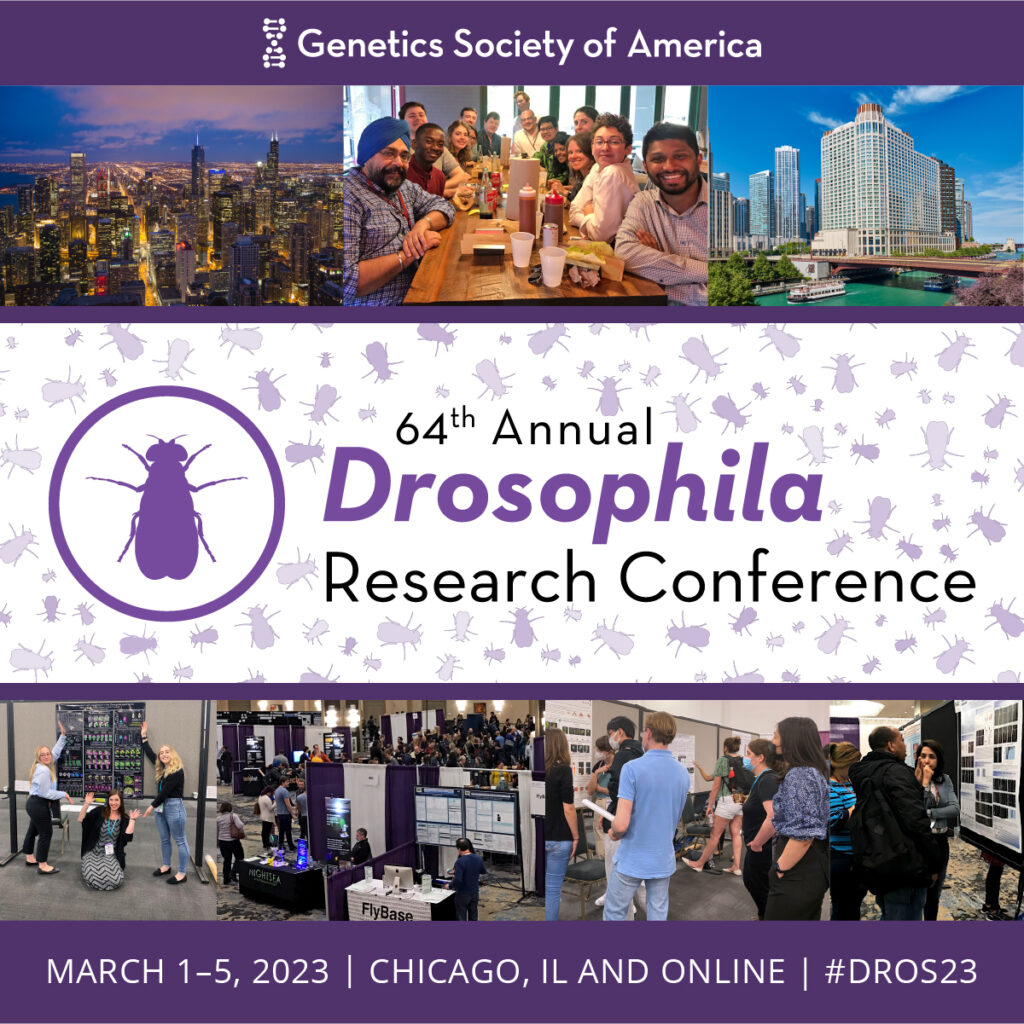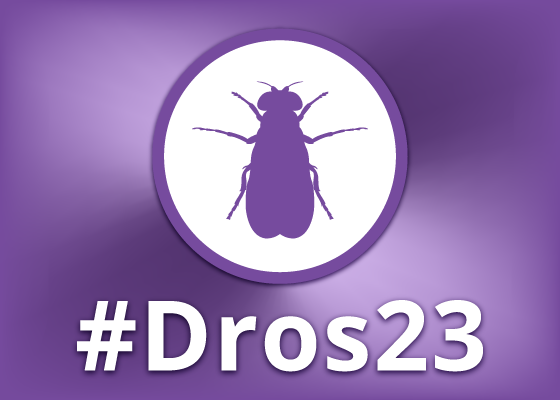
The Annual Drosophila Research Conference started in 1958 in Madison, Wisconsin as a free-form meeting where “people spoke as the spirit moved them.” Now in its 64th year, the meeting has evolved from what one of the founders, Larry Sandler, called “genetic analysis for fun and recreation,” into the premier worldwide meeting of Drosophilists. Over the decades, the meeting has held on to the legacy of its founders and embraced developments in research, science, culture, and more recently, due to the Coronavirus pandemic, public health.
With the past few years being so disruptive, and our individual and collective experiences of the pandemic giving us new insight into ourselves, our communities, and our aspirations, the meeting organizers thought it important to ask how we will apply this new knowledge to build the future of scientific conferences. This question also informed the decision to introduce the theme “Pay It Forward” at #Dros23. The theme, which will be woven throughout the meeting, reflects an awareness of the history and culture of Dros meetings and attempts to envisage these values in today’s context.
As such, the spirit of “Pay It Forward” will be highlighted in a unique and interactive Diversity, Equity, and Inclusion session led by Raquell Holmes, Founder and Director of improvscience, and Tânia Reis, Associate Professor at the University of Colorado School of Medicine. In this session, attendees will experience a new way of getting to know one another, building a community where we can share aspirations and work together to achieve them.
Keynote Speaker:
Yukiko Yamashita, Massachusetts Institute of Technology, HHMI
Plenary Speakers:
Amanda Amodeo, Dartmouth College
Allison Bardin, Curie Institute, France
Edan Foley, University of Alberta
Sally Horne-Badovinac, University of Chicago
Karla Kaun, Brown University
Erin Kelleher, University of Houston
Mustafa Mir, University of Pennsylvania
Caroline Palavicino-Maggio, Harvard Medical School
Kausik Si, Stowers Institute for Medical Research
Lesley Weaver, Indiana University Bloomington
To read the invited speakers’ bios visit the website.
#Dros23 Program:
The conference has been designed in a way that offers something for everyone.
#Dros23 will have opportunities for attendees to present platform talks and posters either in person or remotely. The abstract driven sessions will cover cell stress and cell death, immunity, evolution, reproduction, cell biology, cell division and cell growth, physiology, metabolism and aging, initiatives in education and DEI, among others.
Professional development events will provide resources to those seeking careers in academia, industry, and science writing, among others. Attendees will have the opportunity to participate in networking hotspots and network in the language of their choice through GSA’s Multilingual Networking event. Attendee led workshops will feature topics such as techniques, emerging or specialized areas of research, community resources, education, as well as other topics of interest to the Fly community.
For the complete schedule, and list of professional development events visit the website.
Explore Chicago
The Conference venue is the Sheraton Grand Chicago Riverwalk. Located between the Chicago River and Lake Michigan, the hotel is an urban sanctuary in a downtown setting with plenty of activities to do nearby. Chicago’s two airports and central location also make it an accessible location for US and international attendees. Book your travel and hotel reservations on the website.
Abstract submission for oral presentations closes on November 17. Poster-only submissions will be accepted, as space is available, through January 4, 2023.
We look forward to seeing you all in Chicago for #Dros23!













